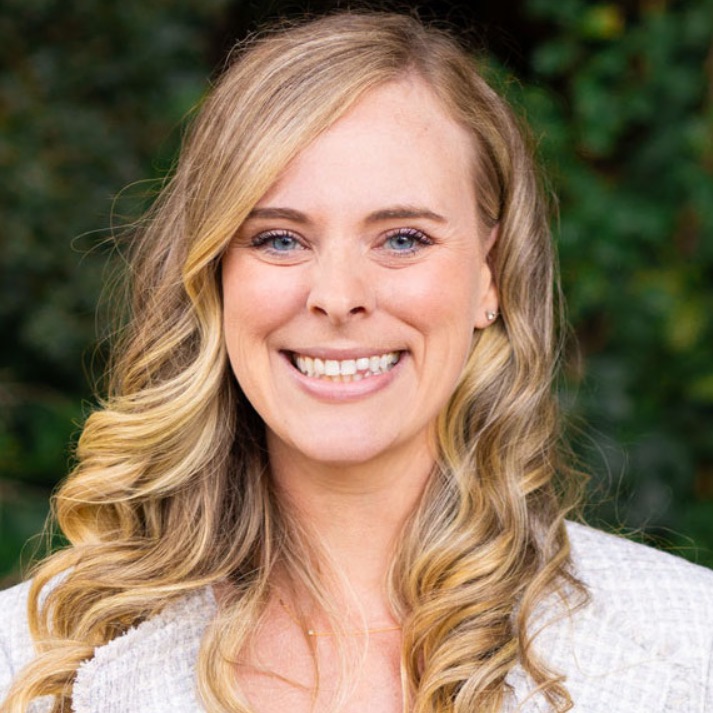Exploring Treatment Choices for Self-Esteem in Columbus
Exploring self-esteem support in Columbus can include in-person sessions near Downtown, Short North, or the Ohio State University area, as well as teletherapy you can join from Clintonville, Westerville, or Gahanna. Individual therapy offers tailored strategies to challenge negative self-talk, while group therapy can build confidence through shared practice and feedback. If you’re navigating busy commutes on I-70, I-71, or the I-270 outerbelt, or prefer to avoid Downtown parking, teletherapy or providers in neighborhoods like Grandview Heights or German Village may be more convenient. Many clinicians offer evening appointments to work around OSU schedules or shifts in healthcare and tech hubs.
MiResource helps you compare options quickly by filtering Columbus providers by therapy approach (such as CBT, ACT, or psychodynamic), insurance accepted, and real-time availability. You can sort by in-person vs. virtual care, distance from your neighborhood, and group offerings that fit your calendar. Filters make it easier to find COTA-accessible offices along major routes or telehealth clinicians if you’re in Dublin, Hilliard, or farther from the urban core. With clear profiles and scheduling details, you can choose support for self-esteem that fits your goals, location, and routine.
Local Programs and Community Partners
Columbus offers a strong network of community partners that nurture self-worth alongside professional care.
Mental Health America of Ohio
in the Discovery District hosts peer-led groups and skill-building workshops, while
NAMI Franklin County
facilitates supportive gatherings from Clintonville to the Hilltop that help people rebuild confidence through shared experience. The
Columbus Metropolitan Library
’s Main Library by Topiary Park frequently features wellness talks and community meetups, and
Columbus Recreation and Parks
community centers in Linden and Driving Park run youth and adult programs that build resilience and self-esteem. These neighborhood-rooted supports pair well with MiResource’s therapist directory to help you find both clinical care and everyday encouragement across the city.
Students and young adults can tap into confidence-building resources through Ohio State’s University District services, including campus wellness programming that complements therapy.
Stonewall Columbus
in the Short North and
Kaleidoscope Youth Center
in the Discovery District provide affirming peer spaces where LGBTQ+ community members can strengthen self-acceptance.
YWCA Columbus
near Topiary Park offers empowerment initiatives for women and families, and
ROX (Ruling Our eXperiences)
, founded in Columbus, partners with local schools to help girls develop lasting self-confidence. Together with MiResource’s Self-Esteem therapists in Columbus, these nonprofits and public programs create a community-wide path to belonging, growth, and support.
Urgent Help for Self-Esteem in Columbus
If you’re in immediate danger, call 911 or go to the nearest emergency room (OSU Wexner Medical Center, OhioHealth Riverside Methodist, or Mount Carmel East) now. For 24/7 crisis support, call or text 988 (Suicide & Crisis Lifeline) or chat at
988lifeline.org
. In Columbus/Franklin County, call the Netcare 24-Hour Crisis Line at 614-276-2273 (CARE); you can also request the Netcare Mobile Crisis Team through this number or via 988 for on‑scene support. Ohio’s statewide emotional support line is 1-800-720-9616 (Ohio CareLine). If you prefer in-person but non‑ER help and it’s safe to wait, consider your nearest urgent care or walk-in clinic for a same‑day evaluation and referral.
Key Insights Into Self-Esteem
Self-Esteem
is how you see and value yourself—your sense of “I matter” and “I can handle things.” When it’s low, you might notice negative self-talk, frequent self-criticism, comparing yourself to others, or avoiding challenges because you fear failure. Understanding Self-Esteem matters because it shapes your mood,
relationships
, and confidence at school, work, and home in Columbus. With the right support, you can build a steadier, kinder view of yourself and feel more capable day to day.
Spotting Potential Warning Signs
If you’re noticing changes in how you see yourself, you’re not alone. Many people in Columbus struggle with self-esteem at times; spotting early signs can help you feel better sooner. Support is available, and small steps can make a big difference.
- Frequent negative self-talk, like calling yourself “not good enough” or focusing on your flaws
- Dismissing compliments or feeling uncomfortable when others praise you
- Avoiding new challenges because you fear failing or making mistakes
- Constantly comparing yourself to others and coming up short
- People-pleasing and difficulty saying no, even when you’re overwhelmed
- Over-apologizing or taking blame for things that aren’t your fault
- Feeling undeserving of care, success, or happiness
What Contributes to Self-Esteem
Many people in Columbus experience shifts in self-esteem, and you’re not alone. Self-esteem is shaped by many factors working together over time. It’s not a personal weakness or a character flaw. With support and tools, it can improve.
- Biological: brain chemistry and genetics; hormones and sleep patterns; physical health changes or chronic conditions
- Psychological: past criticism or praise; perfectionism or harsh self-talk; trauma, grief, or big life changes
- Environmental: family and cultural messages; school or workplace pressures; social media, peer comparison, or community stressors
How Self-Esteem Shapes Daily Life
Low self-esteem can color your day in Columbus—making it harder to speak up at work, join social plans, or try new things around the city. You might doubt your abilities, feel stuck, or avoid opportunities on campus or in your neighborhood. These patterns can drain energy and mood, even when you’re doing your best. With the right support, you can build confidence and create routines that feel more balanced—care is a practical step toward change.
- Work and career decisions
- School and studying (including focus and participation)
- Family dynamics and parenting
- Friendships and romantic relationships
- Physical health habits (sleep, exercise, nutrition)
- Mood, stress, and motivation
- Community involvement and social activities
Effective Treatments for Self-Esteem
Building self-esteem is possible with structured, evidence-based care—and support is available in Columbus. Many people see meaningful gains by learning new thinking patterns, practicing skills, and taking small, consistent actions. These proven approaches can help you feel more confident and capable; reaching out is a strong first step.
- Cognitive Behavioral Therapy (
CBT
): Identifies and challenges negative self-beliefs, builds balanced self-talk, and increases confidence through skill practice and behavioral experiments.
- Compassion-Focused Therapy (CFT): Cultivates self-kindness and reduces harsh self-criticism using mindfulness, imagery, and compassion-building exercises.
- Acceptance and Commitment Therapy (ACT): Helps you unhook from self-judgment, clarify values, and take committed actions that strengthen self-worth over time.
- Interpersonal Therapy (IPT): Improves communication and relationship skills, addressing social patterns that impact self-esteem and belonging.
- Group Therapy or Skills Groups: Offers guided practice, feedback, and encouragement from peers, normalizing struggles and reinforcing new skills.
- Mindfulness-Based Approaches (e.g., MBCT): Increase awareness of unhelpful thought loops and promote present-focused, nonjudgmental acceptance to support healthier self-view.
Quick Answers for Self-Esteem Therapy in Columbus
1. Can Self-Esteem happen to anyone?
Yes—self-esteem challenges can affect anyone in Columbus, regardless of age, gender, or background. Many people go through periods of self-doubt, and it doesn’t mean anything is wrong with you. Certain factors—like past criticism or trauma, perfectionism, discrimination, social media pressures, or major life changes—can increase risk. Support is available, and therapy can help you build a steadier, kinder relationship with yourself.
2. Is Self-Esteem just stress or something more serious?
Everyday stress is a normal, short-term response to life’s pressures, while self-esteem concerns deeper, ongoing beliefs about your worth and capabilities. If you feel persistently inadequate, overly self-critical, avoid opportunities because of self-doubt, or it’s affecting work, school, or relationships for weeks or longer, it may be more than temporary stress. These patterns can also show up alongside anxiety or low mood. Support in Columbus is available, and therapies focused on building self-esteem are effective.
3. What are some misconceptions about Self-Esteem?
A common myth is that high self-esteem equals arrogance; in reality, healthy self-esteem is grounded, respectful, and compatible with humility and empathy. Some people believe self-esteem is fixed by upbringing or past experiences, but with support—like therapy available in Columbus—it can grow through practice and new skills. Another misconception is that you must feel good about yourself all the time; self-esteem allows for bad days while maintaining a stable sense of worth. It’s also not dependent on achievements or others’ approval—your value isn’t measured by grades, titles, or likes.
4. Can Self-Esteem improve without treatment?
Yes, self-esteem can sometimes improve on its own, especially with time, life changes, and personal reflection. Still, working with a professional in Columbus often accelerates progress, builds lasting coping skills, and reduces the chance of setbacks. Expert support helps you understand root causes, practice evidence-based tools, and sustain confidence long term.
5. How do I talk about my Self-Esteem with family or friends?
Start small with someone you trust and say what you’re comfortable sharing, like, “I’m getting help for Self-Esteem, and it would mean a lot to have your support.” Set clear limits: “Right now I’m okay talking about how I’m doing, but I’m not ready to get into details,” and ask directly for help: “I’d appreciate support by checking in once a week or joining me for a confidence-building activity.” You can reduce pressure by sharing a resource first—send a short article on Self-Esteem or a link to Columbus therapists and groups so they understand what you’re working on. Remind yourself you’re not alone in Columbus; many people are building self-worth, and it’s strong to ask for the kind of support you need.
6. Who is qualified to diagnose Self-Esteem in Columbus?
In Columbus, self-esteem concerns are evaluated and diagnosed when part of a mental health condition by licensed professionals such as
psychiatrists
(MD/DO), psychologists,
psychiatric nurse practitioners
, licensed independent social workers,
licensed professional clinical counselors
, and
licensed marriage and family therapists
. These clinicians are authorized in Ohio to assess, diagnose, and treat mental health conditions that affect self-esteem. MiResource only lists vetted Columbus providers with active licenses who are qualified to deliver accurate diagnoses and safe, effective care.
7. What usually happens in a first therapy session for Self-Esteem?
In your first self-esteem therapy session in Columbus, you’ll start with simple introductions and talk about what brings you in. Your therapist will invite you to share some personal history and experiences that may influence how you see yourself. Together, you’ll discuss your current concerns, strengths, and what’s been most challenging. You’ll then set clear, realistic goals and a plan for how therapy can support your confidence and self-worth moving forward.













